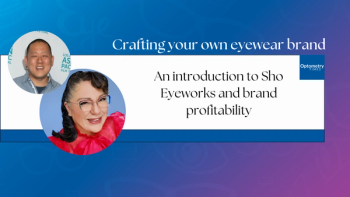
AOA 2024: How to support patients who are receiving intravitreal injections
Rafieetary emphasizes the importance of follow-up plans and consistent support to prevent patients from dropping out of treatment, which can negatively impact their prognosis.
In this interview, Mohammad Rafieetary, OD, FAAO, discusses his American Optometric Association (AOA) lecture titled, "Through the eye of the needle," which focuses on the experiences of patients receiving eye injections for retinal diseases. The lecture is interactive, featuring a panel including Jessica Haynes, OD, FAAO, FORS, and Roya Attar, OD, MBA, FAAO. They aim to provide insights into the challenges faced by patients, including transportation, insurance, and emotional stress, and offer advice to referring optometrists on supporting these patients. The lecture seeks to address "injection fatigue" and other logistical issues to ensure patients continue their necessary treatments.
Video transcript
Editor's note: This transcript has been lightly edited for clarity.
Mohammad Rafieetary, OD, FAAO:
Hello, everybody, I'm Mohammad Rafieetary. I'm an optometrist. I practice at the Charles Retina Institute. We have a multi-physician, multi-clinic, retina specialty practice that covers basically west Tennessee, north Mississippi, and east Arkansas. I'm here at the AOA, have [to wear] many hats at the AOA. I'm on the Education Committee. I'm giving lectures here. I'm sitting in some lectures.
But the one lecture I'm very, very, very excited about is called, "Through the eye of the needle." I have about an hour interview with other optometric colleagues, retina specialists, and particularly a lot of patients that are going through the experience of receiving injections in their eyes for a variety of retinal diseases. And we often, you know, the colleagues who refer these patients to a place like my practice where it's a retina only practice, they don't really get the sense of what these patients go through [during] their journey of, you know, we explain this stuff to them, they get injections, they have to come back frequently. They get exhausted, they have a lot of issues from transportation, insurance coverage. So we tried to cover this and this is a very, very interactive lecture. I have two colleagues, Dr. Jessica Haynes that works with me actually at the Charles Retina Institute, and Dr. Roya Attar, who's actually at the University of Mississippi Medical Center in Jackson, Mississippi. I have them as a panel of experts, for us to be able to engage the audience. I hope you can make it to that lecture. I'm excited to see you all there.
There are a couple of advices I can give to the colleagues who refer patients to retina practices where the patients may end up being a frequent flyer. One is to make sure you always have a followup plan for your patient in your practice. One is to give that support and explain to these patients that are being managed for a chronic disease. So basically, [be] like a cheerleader to make sure that patients don't drop off treatment because dropping out of treatments often ends up in poor prognosis, and none of us want that for our patients.
Right now, one of the biggest challenges we face in this group of patients where they receive frequent injections, there is something called an injection fatigue, they don't want to go through this, there is a lot of logistics. Again, they have transportation issues, they have to have caregivers bring them, and the anxiety of what they go through because you tell somebody you're going to stick a needle in their eye, you know, you can get 200 different responses from the patients. So we try to calm the patients down, reassure them, you know, support them again so they continue with their chronic disease treatment and management.
Newsletter
Want more insights like this? Subscribe to Optometry Times and get clinical pearls and practice tips delivered straight to your inbox.













































